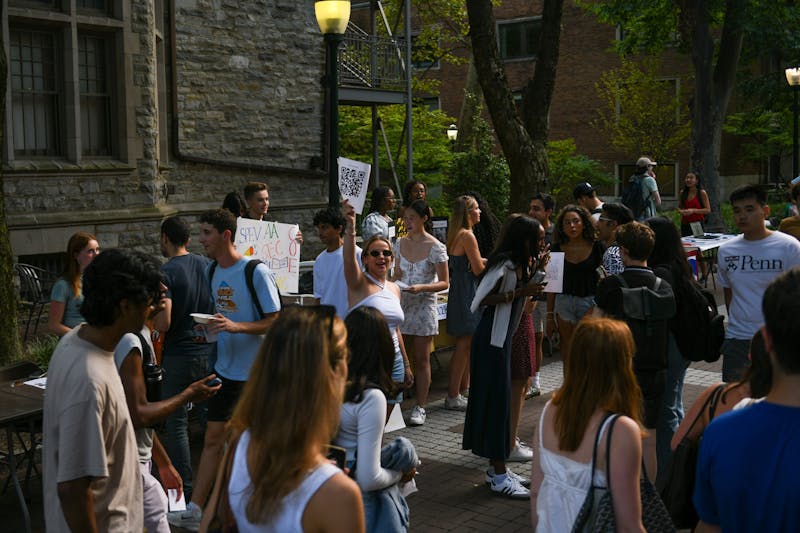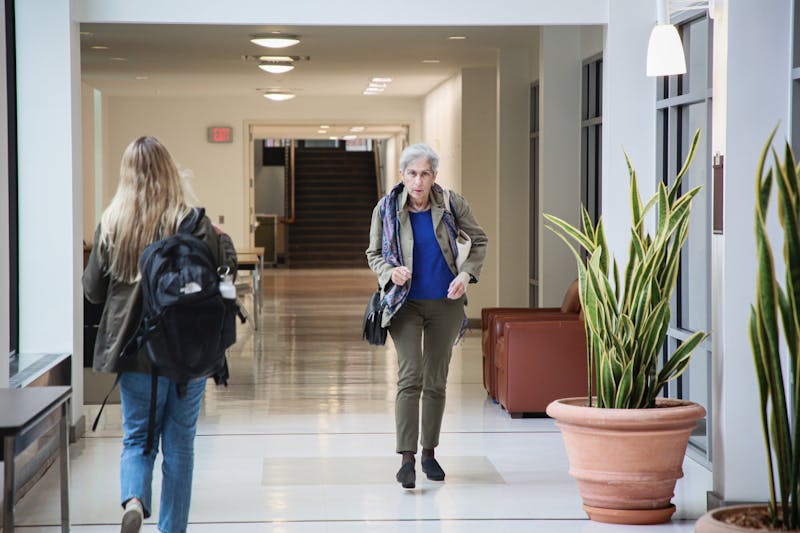Community health workers are at the heart of a new program implemented at Penn hospitals in order to help improve patient outcomes post-discharge.
The community health workers, who now work for the newly created Penn Center for Community Health Workers, operate in two different settings: some in a primary care clinic and others at a hospital. A CHW is not a physician, but rather someone from the same community and background as the patient he or she works with.
Through Penn’s new center, each CHW is embedded in a particular team, whether it be the medicine team at Penn Presbyterian Medical Center or teams at the Hospital of the University of Pennsylvania. All are assigned patients based on a daily- generated list.
“Workers go into patients’ rooms, introduce themselves and have an open and informal conversation with them about what they view as the major health issues and what they need to do to get healthy,” Project Manager of the Center for Community Health Workers Casey Chanton said.
This approach was found to improve overall patient outcomes post-discharge, according to a recent Penn study. In light of the study, Penn decided to implement the CHW approach in its health care facilities.
Through this approach, CHWs are each assigned case loads depending on where they work. Chanton said the workers in the primary care clinic have on average about 25 patients, whereas the workers for patients in transition - people working with patients getting ready to leave the hospital - pick up about three patients a week.
Chanton explained that CHWs in primary care clinics work with patients for six months, setting management goals for ways they can deal with their chronic illnesses. For in-transition patients, intervention lasts for a minimum of two weeks, but can take longer.
Chanton added that the approach is patient-driven in that the patient decides what needs to be done in order to improve their own health. Among other tasks, the workers help ensure that the patient meets their own goals.
“If a patient has a goal to control her diabetes, I would ask her what she thinks she needs to do to get her diabetes under control,” community health worker Irene Estrada said.
“She might say things like, I want to check my sugars twice a day or cut down on sweets or work out at the YMCA,” Estrada said. “Then I meet with her for six months to help her achieve those goals. I might call her to remind her to check her sugars or meet her at the YMCA to work out.”
Because of the amount of interaction between patients and CHWs involved in this approach, there are many qualities the workers must have.
“The job of a CHW entails having a passion for this type of work, trustworthiness, patience and good listening skills,” community health worker Mary White said. “Without these qualities, it would be hard to relate and work towards making a difference in another person’s life.”
CHWs function to break down the goals into realistic steps and oftentimes go places with the patient, whether it is to sign up for programs in the community, get discharge medications or get access to home care.
“The most rewarding part for me is when the patients have reached their health goal and I get to speak with them about their success at the end of the six months,” said Estrada, who works in primary care. “I get to see how excited they are ... it makes me feel accomplished and proud of them.”
Although the workers form the basis of the support system for patients, and the experience is positive for all parties involved, there are still persistent problems.
“Sometimes there aren’t always enough resources or funding in the community for things that patients need, such as a ramp to get out of the house in a wheelchair,” Estrada said. “Sometimes we have to get creative with the resources that are available.”
In addition to difficulties with appropriating resources, CHWs also struggle when they move to helping another patient.
“The most challenging part about being a CHW is forming relationships with the people you work with and then having to end them,” White said. “Even though you feel proud and happy for them achieving their goals, there’s that part of you that will miss working with them.”
The Daily Pennsylvanian is an independent, student-run newspaper. Please consider making a donation to support the coverage that shapes the University. Your generosity ensures a future of strong journalism at Penn.
DonatePlease note All comments are eligible for publication in The Daily Pennsylvanian.







